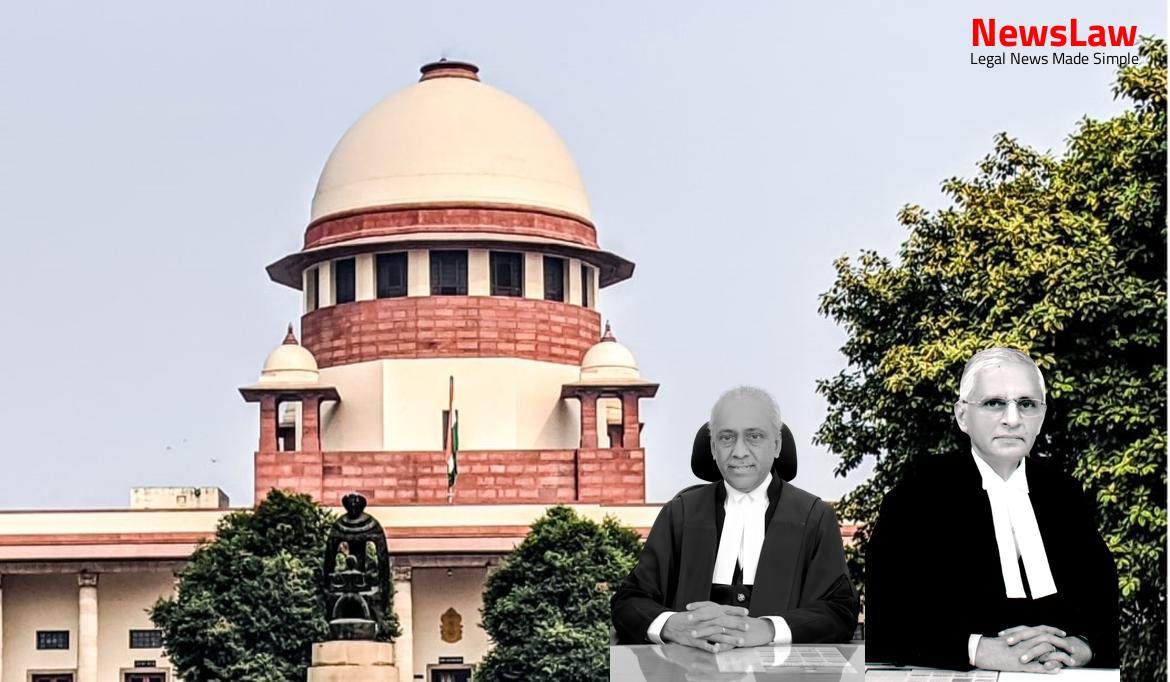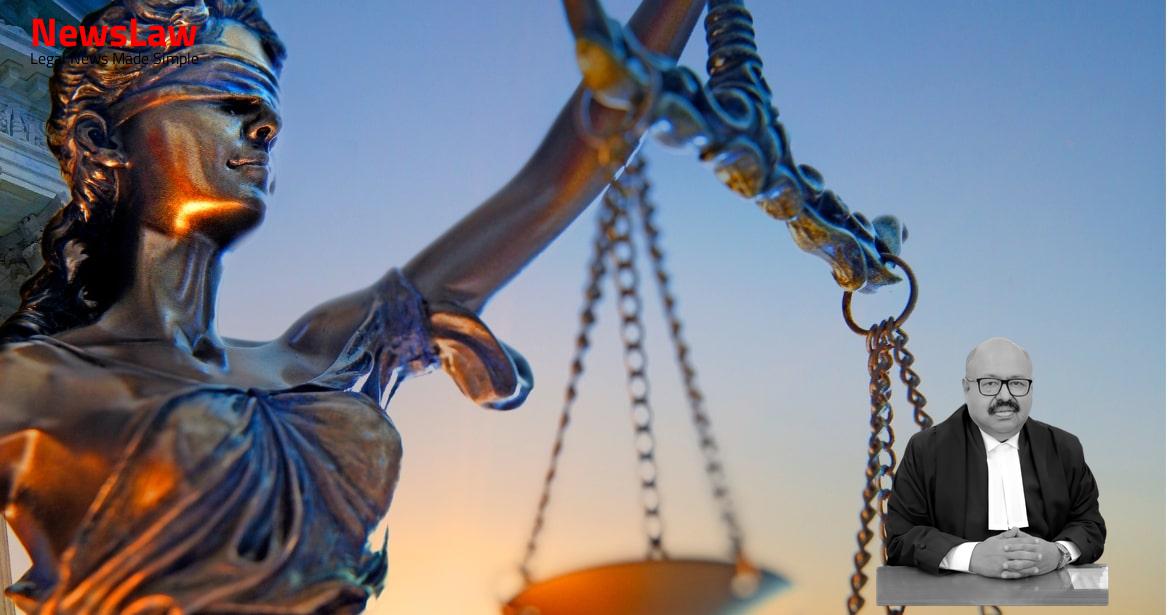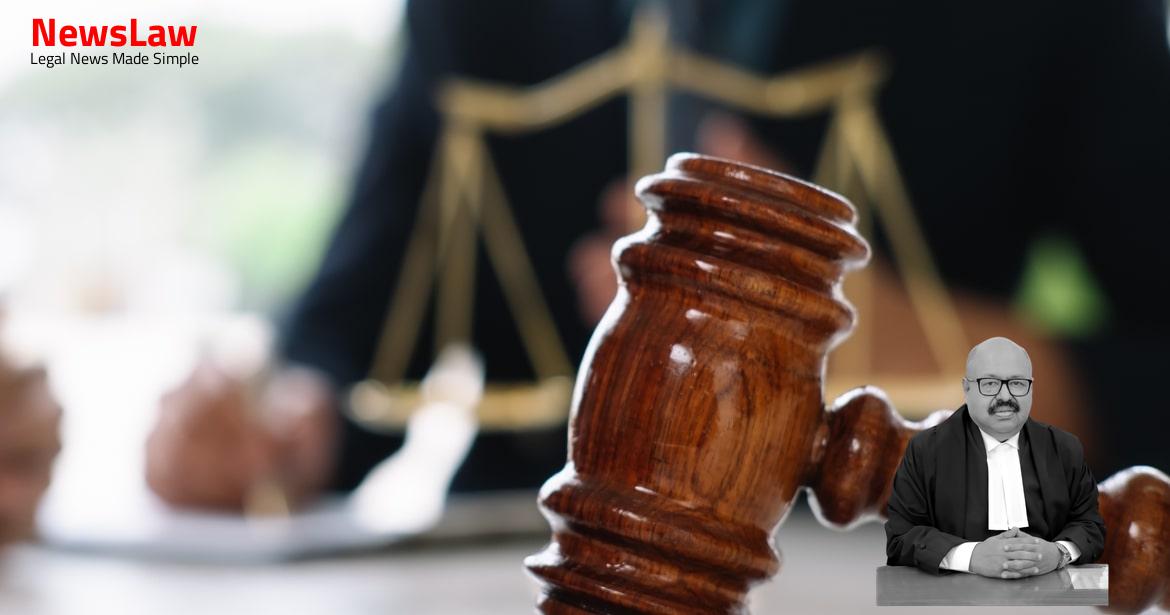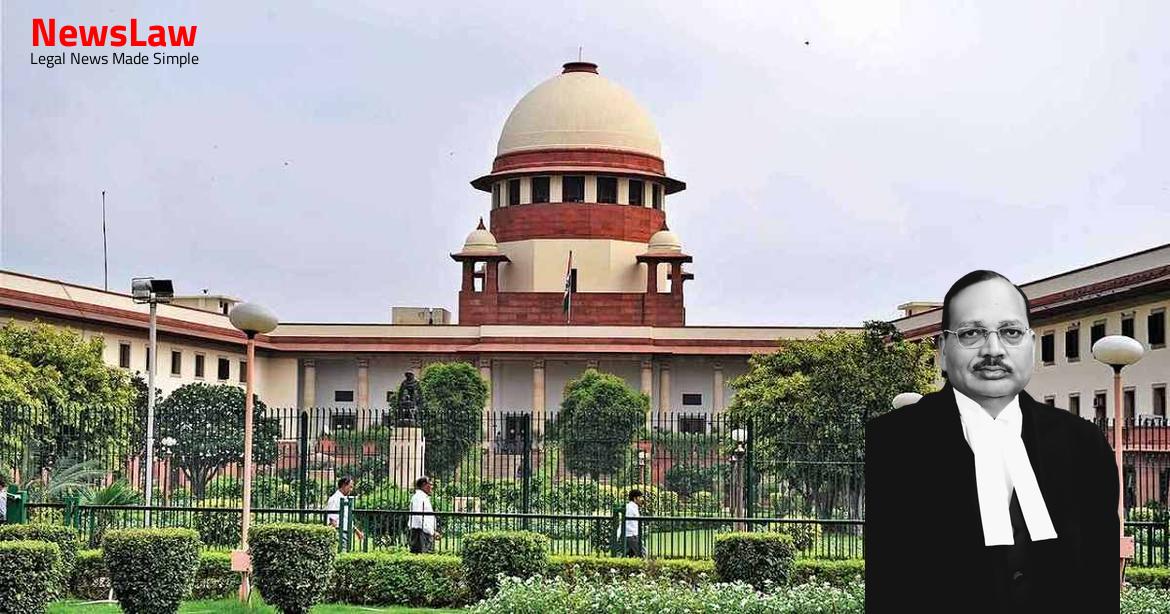The recent court case delves into the detailed legal analysis surrounding election petitions and disqualification issues, shedding light on the complexities faced by elected members and petitioners. Explore the nuances of challenging election results and the repercussions of disqualification on elected officials, as the court navigates through the intricate legal framework governing such matters.
Facts
- The election petitioner challenged the election of the first respondent in a writ petition before the High Court of Karnataka.
- Several elected members, including the first respondent, submitted resignations from the house.
- A writ petition was filed due to the Speaker’s inaction on the resignations.
- The Court directed the Speaker to make a decision regarding the resignations.
- Petitions for disqualification were moved against the legislators who resigned.
- The Court passed interim orders in response to the disqualification petitions.
- A trust vote was conducted where the resigned members did not attend.
- The Speaker rejected the resignations and disqualified all the members until the end of the term.
- The election petition was filed before these events unfolded.
- Members disqualified under the 10 Schedule face sanctions under Articles 75(1B), 164(1B), and 361B of the Constitution.
- Disqualified members cannot be appointed as Ministers or hold any remunerative political post until the end of their term if not re-elected.
- The first respondent ceased to be a member of the Karnataka State Assembly as a result of the Court’s judgment.
- Disqualifications are retroactive to the date of the defection act.
- A pending disqualification action remains valid even if a resignation letter is submitted afterwards.
Also Read: Analysis of High Courts’ Jurisdiction and Court Orders Under Article 142
Issue
- The petitioner has filed a petition seeking various reliefs in relation to the Karnataka Legislative Assembly Constituency No. 154, Rajarajeshwarinagar.
- The petitioner’s prayer includes declaring the return candidate as void of corrupt electoral practice under Section 123 of the R.P Act 1950.
- One of the reliefs sought is to declare the petitioner as duly elected to the seat of Karnataka Legislative Assembly Rajarajeshwarinagar Constituency No. 154.
- The petitioner also requests the court to pass any other orders deemed fit for justice and equity in the matter.
- The petitioner also seeks the cost of the proceedings to be awarded.
- It is noted that as of now, granting relief in terms of prayer (a) is only academic.
Also Read: Electoral Malpractices in Mayor Election
Arguments
- In the case of Prakash Khandre vs. Dr. Vijay Kumar Khandre and Others, it was noted that it would be impossible to predict the voting pattern if the elected candidate was disqualified or his nomination was rejected on the grounds of disqualification.
- There were no pleadings of material facts related to the required clauses in Section 101 of the Act in the election petition to support prayer (c).
- Legally, the High Court could not grant prayer (c) due to having 14 candidates in the election.
- The Order of the High Court was deemed not necessitating any interference, leading to the dismissal of the Special Leave Petitions without costs.
- The petitioner could still pursue prayer (b) and if successful, may be able to seek relief under prayer (c).
Also Read: Balancing Power and Transparency: Electoral Bonds Struck Down, Disclosure Mandated
Analysis
- The High Court allowed the amendment to the election petition only to a certain extent, rejecting the part related to the ingredients of section 101 (b).
- The election petitioner did not plead material facts necessary for the High Court to form an opinion in terms of Section 101, leading to the striking off of a prayer.
- The petitioner was declared to have secured fewer votes compared to the first respondent in the election results.
- The Speaker disqualified the first respondent during the pendency of the election petition on a different ground, which was upheld by the Court.
- The original election petition lacked necessary averments related to Section 101, leading to a strikeout application by the first respondent.
- The petitioner moved for an amendment to the pleadings after the first respondent’s strikeout application, which was deemed insufficient by the High Court.
- The proposed paragraph for amendment did not provide the required material facts for the High Court to form an opinion under Section 101.
- The proposed amendment included allegations of corrupt practices and requirements of section 101 (b) but lacked necessary details.
- The case involved 14 candidates, including the petitioner and the first respondent, in the elections.
- The proposed amendment was also barred by limitation, further complicating the case.
- The election petitioner must prove either receiving a majority of valid votes or would have received a majority if not for corrupt practices by the returned candidate.
- This requirement is stated in Section 101 of the Representation of the People Act, 1951.
- The Act sets the two conditions for the election petitioner to satisfy in order to challenge the election results.
- It is essential for the election petitioner to establish these conditions to contest the election outcome.
- In the case of D.K. Sharma vs. Ram Sharan Yadav, the Court found it difficult to predict the voting pattern if electors were aware of disqualifications during election.
- The Viswanath Reddy case was referred to in the case of Thiru John vs. Returning Officer & Others, where votes for a disqualified candidate were considered void.
- The rule excluding votes secured by corrupt practices of a disqualified candidate can only be applied with two candidates, as per the Constitution Bench.
Case Title: MUNIRAJU GOWDA P. M. Vs. MUNIRATHNA (2020 INSC 594)
Case Number: SLP(C) No.-006787-006788 / 2020



